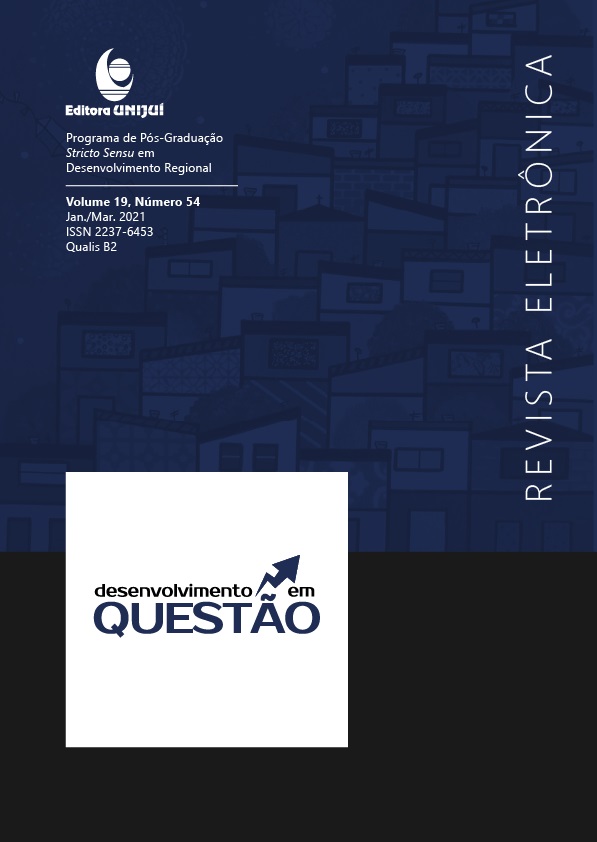Externalidade Florestal: Caracterizações e Soluções Provenientes das Legislações Florestais Brasileiras e dos Acordos Internacionais sobre Meio Ambiente
DOI:
https://doi.org/10.21527/2237-6453.2021.54.143-163Keywords:
Externality, Forest, New Institutional Economics, Law, International treatiesAbstract
The environmental externality is the loss (or benefit) related to environmental issues, caused by the economic activity of individuals who are not involved in this trading relationship. Forest externalities are characterized by the relationship with the forests, either as a result of activities carried out or due to the benefits or harm caused to them and as well as to their environmental services. The purpose of this paper is to characterize as forest externalities and to describe the mechanisms of solution based on two groups of documents: (i) international agreements and reports of world events organized by UN agencies; (ii) Brazilian forest legislation. The results demonstrate the association of forest externalities with the way the forest resources and soil are used. It is observed some essential characteristics of this external quite similar in both sets of documents, despite their different approaches. These features refer to: a) dynamic balance of forest externalities; b) the positive externalities are associated with environmental services or the reduction of pressure over planted forests; c) Solution of environmental issues related to forests predominantly from the regulation and grant; d) Monetary issues characterized only for the shortage of forest products marketed as firewood and wood; e) complex configuration to solve climate problems; although it may be settled off by more than one external mechanism of solution, including the market.
Downloads
Published
How to Cite
Issue
Section
License
By publishing in Revista Desenvolvimento em Questão, authors agree to the following terms:
All works are published under the Creative Commons Attribution 4.0 International License (CC BY 4.0), which allows:
Sharing — to copy and redistribute the material in any medium or format;
Adaptation — to remix, transform, and build upon the material for any purpose, even commercially.
These permissions are irrevocable, provided that the following terms are respected:
Attribution — authors must be properly credited, a link to the license must be provided, and any changes made must be indicated.
No additional restrictions — no legal or technological measures may be applied that legally restrict others from doing anything the license permits.
Notices:
The license does not apply to elements that are in the public domain or covered by legal exceptions.
The license does not grant all necessary rights for specific uses (e.g., image rights, privacy, or moral rights).
The journal is not responsible for the opinions expressed in the articles, which are the sole responsibility of the authors. The Editor, with the support of the Editorial Board, reserves the right to suggest or request modifications when necessary.
Only original scientific articles presenting research results of interest that have not been previously published or simultaneously submitted to another journal with the same purpose will be accepted.
Mentions of trademarks or specific products are intended solely for identification purposes and do not imply any promotional relationship by the authors or the journal.
License Agreement (for articles published from 2025 onward): Authors retain the copyright to their article and grant Revista Desenvolvimento em Questão the right of first publication.











